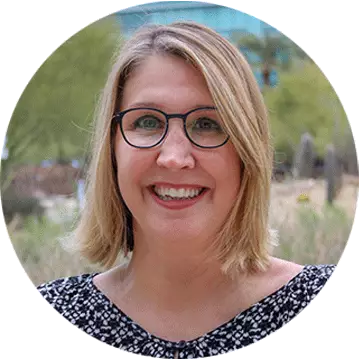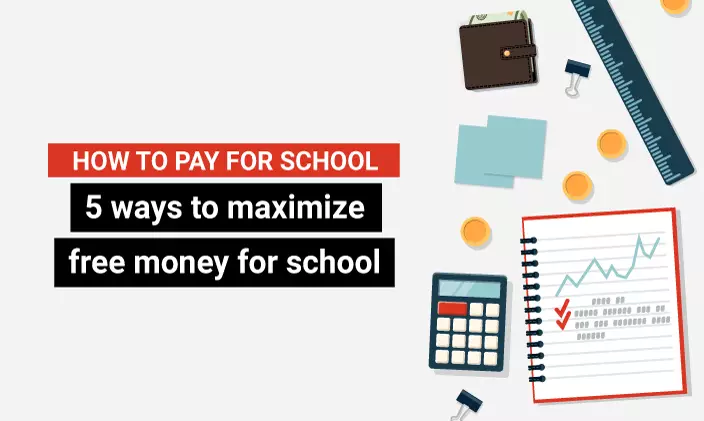4 ways to maximize your financial aid award

Written by Cassidy Horton

Reviewed by Chris Conway, Director of Financial Education Initiatives and Repayment Management

The sticker shock of college tuition is enough to send anyone searching for every cent of available financial aid. That’s why it’s important to develop a strategy for maximizing the aid on your financial aid award letter, no matter how high or low your household income may be. Do it right, and you can lower your out-of-pocket costs and reduce your overall student debt.
To that end, here are four tips for maximizing your financial aid award.
1. Fill out the FAFSA early
One underrated way of maximizing your financial aid award is completing a mission-critical task every year: the Free Application for Federal Student Aid (FAFSA). Some families never fill out the FAFSA despite needing help with college costs.
By submitting your FAFSA application, you may be eligible for the following forms of financial assistance:
- Federal Pell Grant
- Work-Study Grant
- State grants
- Institutional grants and scholarships
- Federal student loans
Completing the FAFSA is also a prerequisite for many scholarship opportunities. Not filling it out could exclude you from even more money.
Even if you think your income is too high to receive a financial aid package, it’s still worth completing the FAFSA. There are no guarantees, but you may have better odds of getting a better financial aid award letter. National Center for Education Statistics data from 2019–2020 found 85.4% of full-time undergraduate students who completed the FAFSA were awarded financial aid.
So, don’t shortchange yourself on opportunities by not applying at all.
2. Search for scholarships
One of the best ways to maximize your financial aid package is to search for scholarships. Scholarships are a form of financial aid that does not need to be repaid, making them an ideal way to reduce the amount of money you need to borrow to pay for college.
Some scholarships are awarded based on academic merit, while others are based on financial need. There are also scholarships available for specific populations of students, such as women, minority groups, single parents and veterans. Be sure to research the different types of scholarships to find ones you may be eligible for.
Here are some places to look for scholarships:
- Your college or university’s financial aid office
- The U.S. Department of Labor’s free scholarship search tool
- Your state’s grant agency
- Foundations, religious or community organizations, local businesses and civic groups
- Professional organizations related to your field of study
Read the eligibility requirements carefully and submit your scholarship application before the deadline. You may need to write an essay or provide other documentation as part of your application, so give yourself plenty of time to complete the application.
3. Look for FAFSA mistakes and correct them
Transposing numbers, not reading instructions and definitions carefully — these are common mistakes that could mean less money in the total aid you are awarded.
To ensure this doesn’t happen to you, review your FAFSA to confirm you reported all of your information correctly. And if you catch an error after submitting, there’s still hope: Simply log in to the Federal Student Aid website with your FSA ID and explore your options under “Reviewing and Correcting Your FAFSA Form.”
Completing the FAFSA can be challenging. Don’t feel bad if you make a mistake that results in a disappointing financial aid award letter. Correct your error and consider following up with the financial aid office at your school of choice if you think the mistake may have affected your financial aid amount. (See more on that in the next tip!)
4. Explore lower-cost colleges
Even with scholarships and grants, it’s often a stretch that your financial aid package will cover college tuition without going into debt. To avoid deferring your dream of earning a college degree, it’s always an option to consider more affordable colleges.
While public colleges generally have lower tuition rates compared to private institutions, private schools may offer more generous financial aid packages to offset the higher tuition costs, making them more affordable for some students.
Online colleges can also offer a viable option for nontraditional students, as they may have fewer direct expenses like the cost of living on campus and costs for commuting to and from classes that are associated with attending brick-and-mortar schools. University of Phoenix (UOPX), for example, offers fixed tuition rates and scholarship opportunities, making it easier to budget and plan for the cost of education.
Stretch your financial aid award
There are other ways to make your financial aid go further. For example, you can:
1. Take the maximum number of courses or credits allowed.
2. Create the right environment for success. (You want to get the best grades possible and avoid having to retake — and pay again for — a class.)
3. Seek tuition assistance from your employer.
Going to college is exciting and empowering. Understanding how to get the most bang for your buck (through scholarships, financial aid and even the college you select) makes the whole experience that much more rewarding.
Save time and money at University of Phoenix
UOPX is committed to removing barriers to higher education. To accomplish this, the University offers a variety of ways to save both time and money on a degree.
- Savings Explorer® tool: Find out how you could save on your degree program by answering a few questions about your life and work experience.
- Prior Learning Assessment (PLA): Put your experience to work for you. PLA awards college credit for qualifying professional and life experiences.
- Fixed tuition: When you enroll at UOPX, your tuition rate is locked in until you graduate from your program.
- Transfer credits: UOPX allows undergraduate students to transfer up to 87 credits from more than 5,000 accredited institutions. Even better, transferring credits to UOPX is free! Find out which credits will transfer with a free evaluation using unofficial transcripts.
- 3+1 Transfer Pathway: Students can earn three years of general course requirements at a community college and then complete a bachelor’s degree in just over a year with this UOPX program.
- Tuition assistance: UOPX works with hundreds of organizations to offer affordable, reduced-cost education to employees. Check with your employer to see if tuition benefits, reimbursement or assistance is available.
- Scholarships: UOPX offers scholarships for every degree level.

ABOUT THE AUTHOR
Cassidy Horton is an academic advisor turned finance writer who’s passionate about helping people find financial freedom. With an MBA and a bachelor’s in public relations, she’s had the pleasure of working with top finance brands like Forbes Advisor and PayPal. She’s also the founder of Money Hungry Freelancers, a platform dedicated to helping freelancers ditch their financial stress. In her spare time, you can find Horton hiking in the Pacific Northwest and cuddling her two cats.

ABOUT THE REVIEWER
As Director of Financial Education Initiatives and Repayment Management, Chris Conway works with departments across the University to provide resources that allow students to make more informed financial decisions. She is also an adjunct faculty member for the Everyday Finance and Economics course at the University, and she chairs the National Council of Higher Education Resources College Access and Success Committee. Conway is committed to helping college students make the right financial decisions that prevent future collection activity.
This article has been vetted by University of Phoenix's editorial advisory committee.
Read more about our editorial process.
Read more articles like this:



